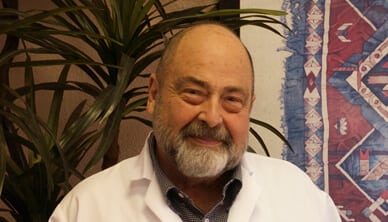Dr. Burt Berkson, through years of practice and success, has designed a protocol for pancreatic cancer. Dr. Berkson is a specialist in alpha lipoic acid. He and I both authored books for Wiley and they launched at the same time. By mistake we got boxes of each others books as we both lived in New Mexico back then (my book was Healthy Digestion the Natural Way).
That’s how the fickle finger of fate had me find out about him. I had a friend get diagnosed and told her and her docs. But even though they had no answers for her, they criticized Dr. Berkson. She went on to die. In her thirties.
But note that a significant number of Dr. Berkson’s patients do not die of pancreatic cancer.
It always stuns me that when medicine has no answer for a life-threatening disease, they still make the patient wrong or fearful or suspicious of other possibly helpful methods, that don’t even have adverse “down” sides.
Medicine has become a cult. It offers so much good. But a lot of bad, too. It has owned our perceptions. It tells us that the only way to heal is their way. Only by patentable meds and procedures.
If you don’t try to heal what you have by the exact ways you are told by medical providers is the only way to get you well, then you are wrong and even acting illegally.
It’s shocking to see how we have given our power away to only “ONE” way.
All based on fear.
If you have a loved one with pancreatic cancer look at Dr. Burt Berkson’s You Tubes. Dr. Berkson has kindly put much of his work, even pre and post MRIs up on You Tube for free.
Treatment summary:
- low dose naltrexone
- IV alpha lipoic acid
- diet low in carbs
- no refined foods with lots of plant based foods.
Here is his second article synopsis in PubMed.
Integr Cancer Ther. 2009 Dec;8(4):416-22. doi: 10.1177/1534735409352082.
Revisiting the ALA/N (alpha-lipoic acid/low-dose naltrexone) protocol for people with metastatic and nonmetastatic pancreatic cancer: a report of 3 new cases.
Berkson BM1, Rubin DM, Berkson AJ.
Abstract. The authors, in a previous article, described the long-term survival of a man with pancreatic cancer and metastases to the liver, treated with intravenous alpha-lipoic acid and oral low-dose naltrexone (ALA/N) without any adverse effects. He is alive and well 78 months after initial presentation. Three additional pancreatic cancer case studies are presented in this article. At the time of this writing, the first patient, GB, is alive and well 39 months after presenting with adenocarcinoma of the pancreas with metastases to the liver. The second patient, JK, who presented to the clinic with the same diagnosis was treated with the ALA/N protocol and after 5 months of therapy, PET scan demonstrated no evidence of disease. The third patient, RC, in addition to his pancreatic cancer with liver and retroperitoneal metastases, has a history of B-cell lymphoma and prostate adenocarcinoma. After 4 months of the ALA/N protocol his PET scan demonstrated no signs of cancer.
In this article, the authors discuss the poly activity of ALA: as an agent that reduces oxidative stress, its ability to stabilize NF(k)B, its ability to stimulate pro-oxidant apoptosic activity, and its discriminative ability to discourage the proliferation of malignant cells. In addition, the ability of lowdose naltrexone to modulate an endogenous immune response is discussed.
These authors have requested support for clinical trials but no one in big Pharma or cancer research has rallied as these actives are not patentable in these natural forms!

